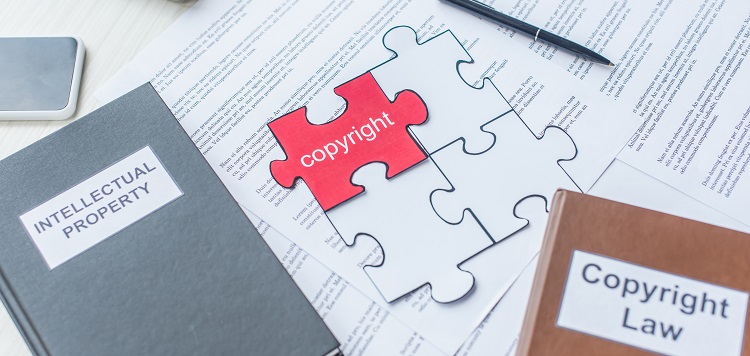Artificial intelligence has revolutionized numerous industries, including marketing and advertising. With generative AI tools creating content, there arises the question of copyright protection for AI-generated content. Does it fall under the same laws as human-created content? Or is it not eligible for protection because it was not created by a human? In this article, we will explore the debate surrounding the copyright of AI-generated content and the responsibility of the industry in protecting intellectual property.
The Definition of Ownable Content
To better understand the debate surrounding AI-generated content’s copyright, we need to establish what constitutes ownable content. According to copyright laws, the work must be created by a human. Thus, anything authored or created by generative AI tools cannot be protected by copyright laws. This definition raises the question – if AI can generate content that is identical to human-created content, why can’t it be copyrightable?
Generative AI Tools and Copyright Laws
The lack of copyright protection for AI-generated content has caused controversy, and marketers are taking sides. On one hand, some argue that just because AI tools create content does not mean they should not be copyrightable. On the other hand, lawyers and industry experts argue that for content to be eligible for copyright protection, it must be created by a human.
The Lack of Consensus Among Lawyers
The lack of consensus among lawyers about the legal status of AI-generated content adds to the confusion. Robert Katai, a marketing practitioner who has talked to several lawyers, states that consensus does not exist and his advice to use on a case-by-case basis comes from his marketing perspective. Therefore, marketers must have some knowledge of copyright laws to make informed decisions about whether AI-generated content is copyrightable or not.
Determining True AI
The industry must take responsibility for determining the authenticity of AI-generated content. Robert Katai suggests that, in a short time as an industry bridging content creators and AI technology, marketers will decide if the tool in question represents true AI, operating from a true learning model, or if it is only scraping content and reassembling it. Understanding the AI tool’s learning model is crucial in determining how it may use the content.
The Importance of Understanding AI Tool Usage
Businesses that use generative AI tools must understand how the tools use the content. Businesses that blithely and proudly churn out blog posts, longer content articles, ad copy, or images created 100 percent by AI may be taking a significant risk. Thus, businesses must understand the impact of using AI tools without inserting their human touch.
The Role of Human Input in Content Creation
Frankly, it all may come down to how much a human changes the content. In other words, if human input has added significant value to the AI-generated content, it becomes copyrightable. On the other hand, if the content remains the same after going through a human-editing process, it remains ineligible for copyright protection. The key takeaway is that AI-created content is likely to be less original than human-created content.
The Risk of AI-Generated Content
Ironically, the more amazing the AI-generated content, the riskier it becomes. If the content marketing team blithely and proudly churn out blog posts, longer content articles, ad copy, or images created 100 percent by AI, the content may be at risk of being stolen. Hence, it is essential to use AI tools for creating unimportant content.
Instead of using AI tools for critical content, consider using them for content that you don’t mind if it gets “stolen” or exists without copyright protection, such as summaries, sales emails, short blog posts, or FAQs. Utilizing AI tools for less important content lowers the chances of content theft while conserving human resources for developing high-quality content.
Businesses can leverage AI tools to automatically create simple content such as summaries, sales emails, short blog posts, or FAQs. By delegating low-level tasks to AI, businesses can allocate more time for human creativity and engagement in content creation. AI-generated content can also assist businesses in diversifying their content and achieving their marketing objectives by creating more content in a shorter time period.
Focusing on Human-Created Content
Instead of relying solely on AI tools, businesses must focus on creating more human-generated content. The authenticity of human-created content imbues it with a more relatable, unique, and personal touch. Additionally, human-created content is eligible for copyright protection; hence, businesses can maintain intellectual property rights. Businesses can achieve a balance by using AI tools for repetitive or low-level tasks and relying on humans for higher cognitive requirements.
The Importance of Separating AI and Human-Created Content
Businesses must create two distinct categories for content based on its origin – AI-generated or human-created. This strategy helps the business identify content in which human touch creates a unique selling point and reduces copyright infringement risks. Separating the two also helps businesses preserve the intellectual property rights of human-created content.
In conclusion, copyright protection for AI-generated content remains a gray area. While the industry continues to debate the issue, businesses must take responsibility for understanding copyright laws and the impact of using AI tools. The distinction between AI-generated and human-created content is vital for businesses to protect their intellectual property rights. Ultimately, businesses must find a balance between using AI tools for repetitive tasks and using human creativity for authentic and engaging content.

